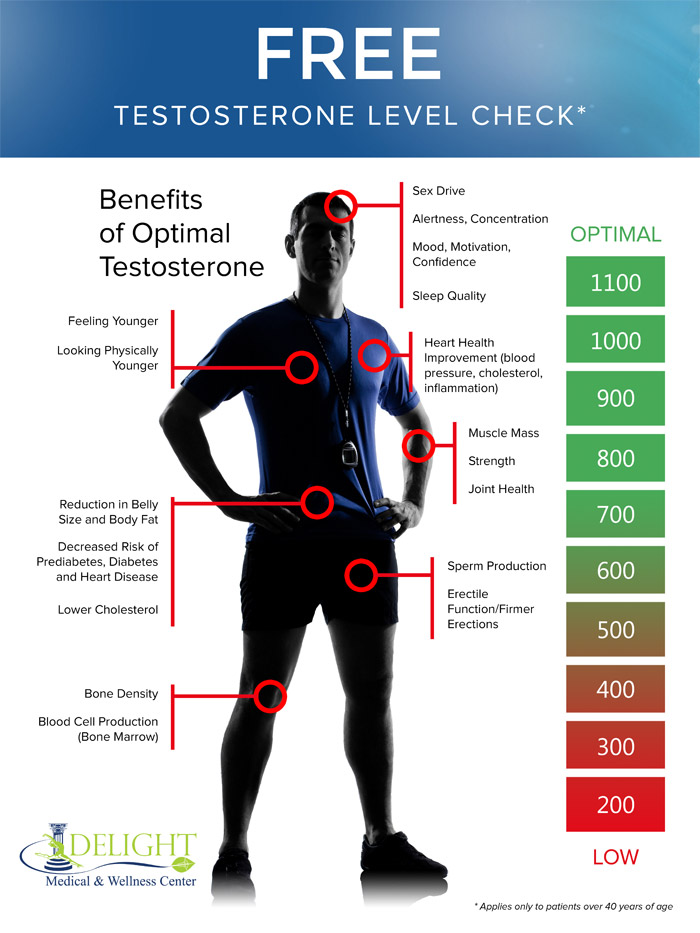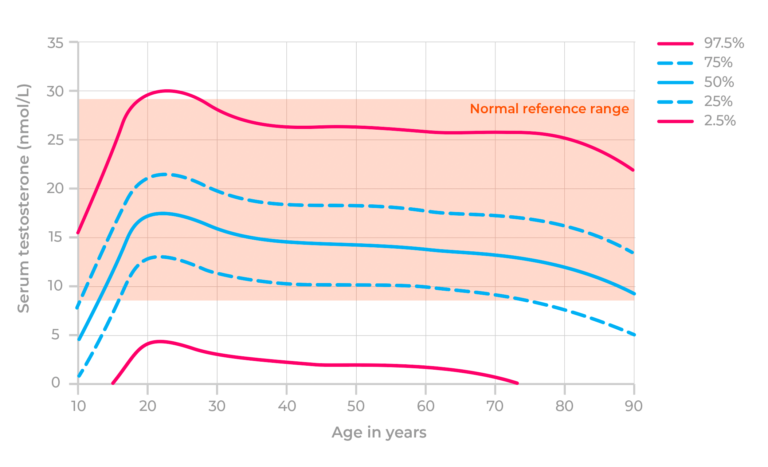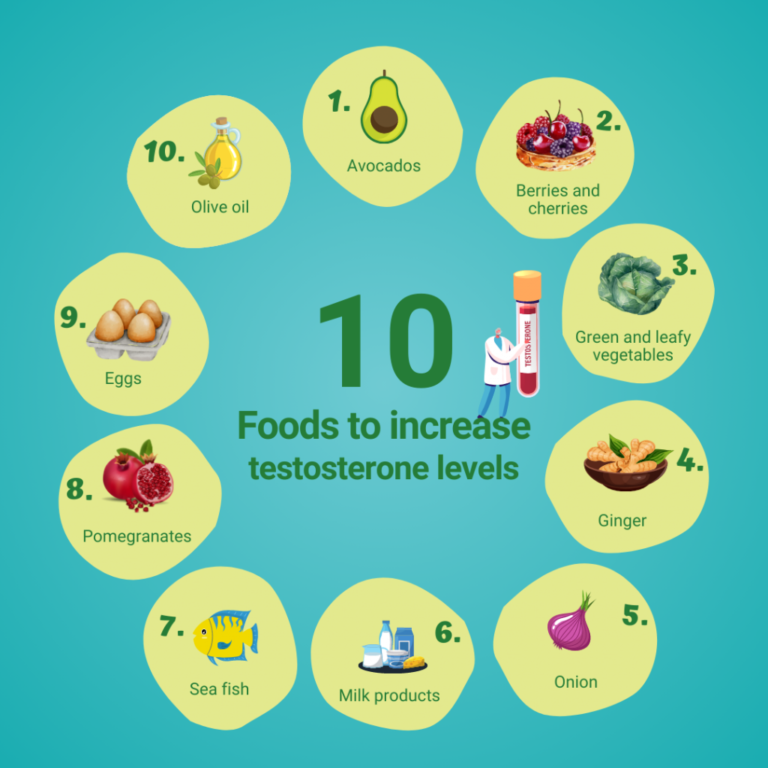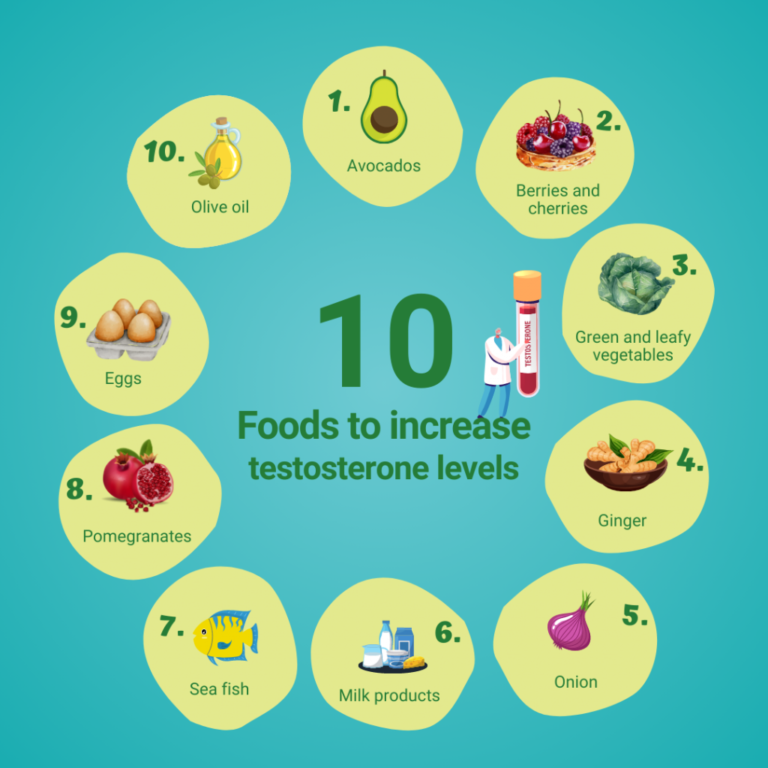Testosterone Levels: How to Boost and Maintain Naturally
Testosterone levels significantly impact male health. They affect muscle mass, mood, and energy levels.
Testosterone is a crucial hormone in the male body. It influences various physical and mental functions. High or low levels can lead to health issues. Maintaining balanced testosterone levels is essential for overall well-being. This hormone plays a vital role in muscle growth, bone density, and libido.
It also affects mood and cognitive abilities. Natural methods like exercise and a healthy diet help regulate testosterone. Regular medical check-ups can detect imbalances early. Understanding testosterone’s importance aids in maintaining a healthy lifestyle. Proper management ensures optimal health and performance.

Credit: evexiasdenver.com
Introduction To Testosterone
Testosterone is a vital hormone in the human body. It plays a crucial role in growth and development. Both men and women have testosterone. Men have higher levels compared to women. This hormone affects physical and mental health. Understanding testosterone can help improve overall well-being.
Importance Of Testosterone
Testosterone influences muscle mass and strength. It also affects bone density. In men, it contributes to facial and body hair growth. This hormone impacts mood and energy levels. Testosterone is crucial for sexual health. It plays a role in sperm production.
Low testosterone levels can lead to health issues. These include fatigue, depression, and reduced libido. Maintaining balanced testosterone levels is important. It ensures optimal physical and mental health.
Natural Vs. Synthetic
There are two ways to boost testosterone: natural and synthetic. Natural methods include exercise and diet. Strength training can increase testosterone levels. Foods rich in zinc and vitamin D are beneficial.
Synthetic testosterone involves medical treatments. These treatments include injections and gels. They can help those with significantly low levels. It’s important to consult a doctor before starting any treatment.
| Natural Methods | Synthetic Methods |
|---|---|
| Exercise | Injections |
| Healthy Diet | Gels |
| Quality Sleep | Tablets |
Diet And Nutrition
Testosterone levels are crucial for both men and women. Diet and nutrition play a vital role in maintaining healthy testosterone levels. Eating the right foods can make a big difference. Below, we explore how diet and nutrition can help boost testosterone levels.
Foods That Boost Testosterone
Several foods are known to increase testosterone levels. These foods are rich in essential nutrients and vitamins. Here are some top foods that boost testosterone:
- Oysters: High in zinc, which is critical for testosterone production.
- Spinach: Contains magnesium, which helps testosterone levels.
- Eggs: Provide vitamin D, which increases testosterone.
- Lean Meat: Rich in protein and zinc, both beneficial for testosterone.
- Tuna: High in vitamin D, which supports testosterone levels.
- Garlic: Contains allicin, which can lower cortisol and boost testosterone.
- Honey: Packed with boron, known to aid testosterone levels.
Nutrients To Focus On
Certain nutrients are essential for maintaining healthy testosterone levels. Here is a table highlighting key nutrients and their benefits:
| Nutrient | Benefits | Sources |
|---|---|---|
| Zinc | Boosts testosterone production | Oysters, beef, pumpkin seeds |
| Vitamin D | Increases testosterone levels | Eggs, tuna, salmon |
| Magnesium | Supports testosterone levels | Spinach, almonds, dark chocolate |
| Boron | Aids testosterone production | Honey, raisins, prunes |
| Protein | Maintains muscle mass | Lean meat, fish, eggs |
By focusing on these foods and nutrients, you can naturally boost your testosterone levels. This can lead to improved energy, mood, and overall well-being.
Exercise And Physical Activity
Engaging in exercise and physical activity can significantly boost testosterone levels. This section explores how different types of exercises impact testosterone production. Understanding these connections can help optimize your fitness routine for better hormone health.
Strength Training
Strength training, or resistance training, is highly effective for increasing testosterone. Lifting weights causes muscle fibers to break down and rebuild stronger, stimulating testosterone production. Focus on compound exercises like:
- Squats
- Deadlifts
- Bench Press
- Rows
These exercises engage multiple muscle groups, leading to higher testosterone release. Aim for 3-4 sessions per week, allowing rest days for muscle recovery. Keep your workout sessions intense but brief, around 45-60 minutes.
Cardio And Hiit
Cardio exercises are also beneficial, though their impact on testosterone is less direct. High-Intensity Interval Training (HIIT) is particularly effective. HIIT combines short bursts of intense exercise with recovery periods. This method boosts testosterone more than steady-state cardio.
Examples of HIIT workouts include:
- Sprinting
- Cycling
- Jump Rope
- Bodyweight Circuits
HIIT sessions should last between 20-30 minutes, performed 2-3 times a week. These quick, intense workouts stimulate hormone production while improving cardiovascular health.
Incorporating both strength training and HIIT into your routine provides a balanced approach. This combination maximizes testosterone levels, muscle growth, and overall fitness.
Sleep And Recovery
Sleep and recovery are crucial for maintaining optimal testosterone levels. Quality sleep allows your body to repair, rejuvenate, and balance hormones. Let’s explore the importance of sleep and some tips to improve your sleep quality.
Importance Of Sleep
Sleep is essential for hormone regulation. During deep sleep, the body produces more testosterone. Lack of sleep can lead to lower testosterone levels. Deep and restful sleep helps in muscle recovery and overall well-being.
Here are some key benefits of good sleep:
- Boosts testosterone production
- Enhances muscle recovery
- Improves mental health
- Increases energy levels
Ensuring you get enough sleep is vital for maintaining healthy testosterone levels.
Tips For Better Sleep
Improving sleep quality can help boost testosterone. Here are some practical tips:
- Stick to a Schedule: Go to bed and wake up at the same time daily.
- Create a Sleep-Friendly Environment: Keep your bedroom dark, quiet, and cool.
- Limit Screen Time: Avoid screens at least an hour before bed.
- Watch Your Diet: Avoid heavy meals and caffeine before bedtime.
- Exercise Regularly: Physical activity can improve sleep quality.
By following these tips, you can enhance your sleep quality and, in turn, support healthy testosterone levels.
Stress Management
Stress management is crucial for maintaining healthy testosterone levels. Stress can wreak havoc on your hormones, especially testosterone. Learning how to manage stress can help balance your hormones and improve overall health.
Impact Of Stress On Hormones
Stress triggers the release of cortisol. Cortisol is a hormone that can negatively impact testosterone levels. High cortisol levels can lead to decreased testosterone. This imbalance can affect mood, energy, and overall health.
Chronic stress can also lead to other health issues. These issues include weight gain, high blood pressure, and sleep problems. All these factors contribute to lower testosterone levels.
Relaxation Techniques
There are several relaxation techniques to help manage stress. These methods can help lower cortisol levels and support testosterone production.
- Deep Breathing: Practice deep breathing exercises daily. This helps calm the nervous system and reduce stress.
- Meditation: Spend a few minutes meditating each day. This can help clear your mind and lower stress levels.
- Exercise: Engage in regular physical activity. This can help boost mood and reduce cortisol levels.
- Sleep: Ensure you get enough quality sleep. Proper rest is essential for hormone balance.
- Hobbies: Spend time on activities you enjoy. This can help take your mind off stress and improve your well-being.
| Relaxation Technique | Benefit |
|---|---|
| Deep Breathing | Calms the nervous system |
| Meditation | Clears the mind |
| Exercise | Boosts mood and reduces cortisol |
| Sleep | Ensures hormone balance |
| Hobbies | Improves well-being |
Lifestyle Changes
Testosterone is crucial for both men and women. Making lifestyle changes can help maintain healthy levels. These changes can boost your overall well-being.
Avoiding Toxins
Toxins in the environment can reduce your testosterone levels. Avoiding them can help. Here’s how:
- Avoid plastic containers. Use glass or stainless steel instead.
- Choose organic foods to limit pesticide exposure.
- Steer clear of products with BPA. Check labels carefully.
- Limit alcohol and tobacco use. These toxins can lower testosterone.
Healthy Habits
Adopting healthy habits can support your testosterone levels. These habits are easy to include in your daily routine:
- Exercise regularly. Aim for both cardio and strength training.
- Get enough sleep. Aim for 7-9 hours each night.
- Eat a balanced diet. Include plenty of protein, fats, and carbs.
- Reduce stress. Practice meditation or deep breathing exercises.
These simple lifestyle changes can make a big difference. By avoiding toxins and adopting healthy habits, you can maintain healthy testosterone levels.
Herbs And Supplements
Testosterone levels can impact a man’s health and well-being. Many seek natural ways to boost these levels. Herbs and supplements are popular options. They promise to enhance testosterone naturally. Below, we explore some common boosters and discuss their safety and efficacy.
Popular Testosterone Boosters
Several herbs and supplements claim to boost testosterone. Here are some of the most popular:
- Fenugreek: Often used for its potential to increase testosterone.
- Ashwagandha: Known for reducing stress and potentially boosting testosterone.
- Tribulus Terrestris: Commonly believed to enhance testosterone levels.
- Ginseng: Used traditionally for its energy-boosting properties.
- DHEA: A hormone that can convert into testosterone in the body.
Safety And Efficacy
Understanding the safety and efficacy of these supplements is crucial.
| Supplement | Safety | Efficacy |
|---|---|---|
| Fenugreek | Generally safe in moderate doses | Some studies show a moderate increase in testosterone |
| Ashwagandha | Considered safe for most people | May help increase testosterone in stressed individuals |
| Tribulus Terrestris | Safe but may cause minor side effects | Mixed results; more research needed |
| Ginseng | Generally safe when used short-term | Limited evidence on testosterone benefits |
| DHEA | Should be used with caution; consult a doctor | Can boost testosterone but may have side effects |
Always consult a healthcare provider before starting any new supplement. They can help ensure it’s safe and appropriate for you.

Credit: www.delightmedical.com
Monitoring And Testing
Monitoring and testing testosterone levels is crucial for understanding health. Regular checks help detect imbalances early. This section covers when to test and how to interpret results.
When To Test Levels
Testing testosterone levels helps track your health. It is advisable to test:
- In the morning, between 7 and 10 AM
- When experiencing symptoms like fatigue or low libido
- Before starting a new workout regime
- Annually, for men over 40
Early morning tests provide the most accurate results. Symptoms like fatigue or low libido can indicate low levels. Annual tests help track changes over time.
Interpreting Results
Understanding test results is key to managing your health. Testosterone levels are measured in nanograms per deciliter (ng/dL). Here is a table for reference:
| Category | Testosterone Level (ng/dL) |
|---|---|
| Low | < 300 |
| Normal | 300 – 1000 |
| High | > 1000 |
Levels below 300 ng/dL are considered low. Normal levels range from 300 to 1000 ng/dL. Levels above 1000 ng/dL are high. Consult a doctor to understand your specific results.
Interpreting results accurately requires understanding the context. Age, health conditions, and lifestyle factors matter. A healthcare provider can offer guidance based on your unique situation.

Credit: www.medichecks.com
Frequently Asked Questions
What Are Normal Testosterone Levels By Age?
Normal testosterone levels vary by age. For males, they are 300-1,000 ng/dL. Levels peak in adolescence and decline with age.
What Are Good Testosterone Levels?
Good testosterone levels range from 300 to 1,000 ng/dL in adult males. Consult your doctor for personalized advice.
What Is A Low Testosterone Level For A Man?
A low testosterone level for a man is generally considered to be below 300 ng/dL. Symptoms may include fatigue, depression, and reduced libido. Consult a healthcare professional for diagnosis and treatment options.
How Can I Increase My Testosterone?
Exercise regularly, eat a balanced diet, reduce stress, get enough sleep, and consider supplements like vitamin D and zinc. Avoid excessive alcohol and smoking.
Conclusion
Maintaining healthy testosterone levels is vital for overall well-being. Regular exercise, balanced diet, and adequate sleep can help. Consult a healthcare professional for personalized advice. Small lifestyle changes can make a big difference. Take control of your health today for a better tomorrow.





